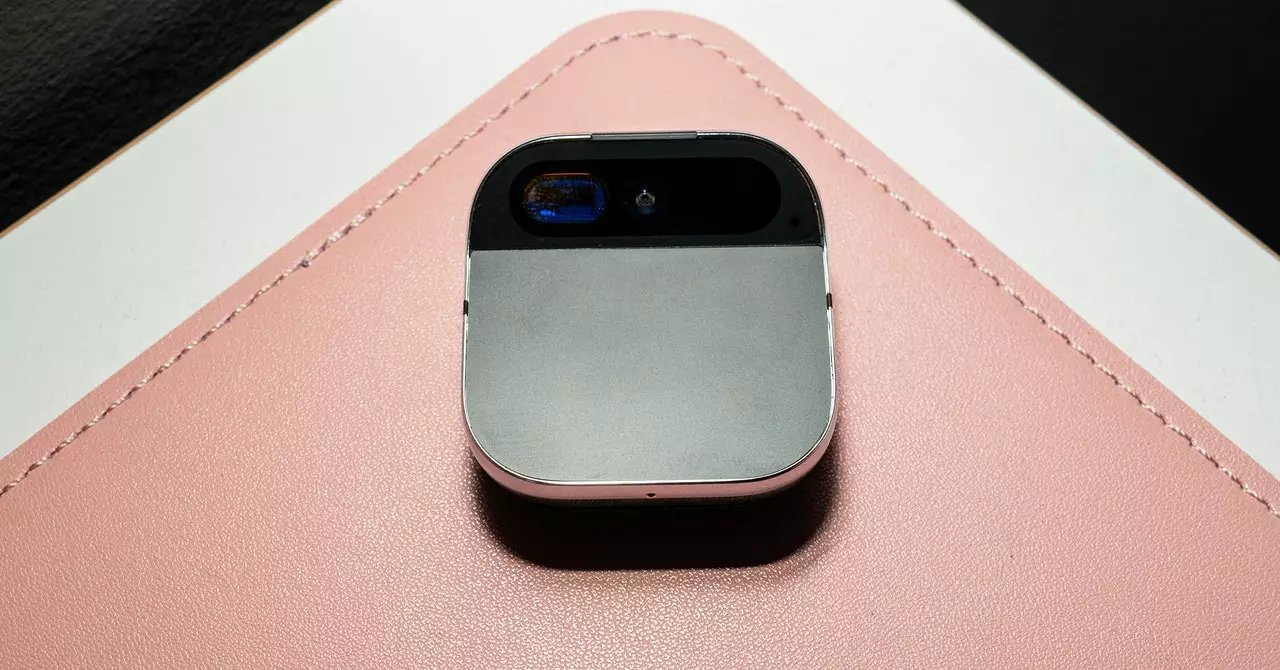This week marked the conclusion of an ambitious yet turbulent chapter for Humane Technology, the company behind the once-promising Humane Ai Pin. The distinctive acquisition announcement by HP, a tech behemoth infamous for its reliance on consumables that never seem to last, raises critical questions about the viability of tech startups that chase groundbreaking ideas without adequate market validation. HP’s $116 million deal to acquire several of Humane’s assets—including over 300 patents and their innovative Cosmos operating system—concludes a saga rife with unmet expectations. While the acquisition illuminates HP’s strategic ambition to rejuvenate its product ecosystem, it simultaneously highlights the stark contrast between visionary advancements and their practical implementations.
In late 2023, Humane Technologies was heralded as “Silicon Valley’s next big thing” with the unveiling of its AI wearable, featuring a ChatGPT-powered voice assistant and a laser-projected display. The initial excitement surrounding this gadget was palpable, painting a picture of convenience—a device that promised to render smartphones obsolete. Yet, as enthusiasm gave way to reviews during its 2024 launch, that optimism was swiftly quashed. The criticisms were severe; problems such as device overheating and frequent “AI hallucinations” tarnished the product’s reputation before it even had a chance to gain traction.
It’s evident that the Humane Ai Pin suffered from significant complications that needed to address the basic functionalities expected from any consumer technology. As user reviews cascaded into the public domain, many consumers were left wondering how a product with such a promising premise could fall so short of user expectations. The lack of useful features and a malfunctioning projector turned what was once a beacon of hope into a glaring example of overselling innovation.
As sales plummeted dramatically, Humane Technologies acknowledged the inevitable and announced that it would issue refunds to customers who purchased an Ai Pin after November 15, 2024. This decision underscored the company’s acknowledgement of failure but also raised questions about consumer trust. With existing Ai Pins slated to become obsolete by February 28, 2025, this sudden dissolution of their flagship product reflects not only a failure in execution but a deeper disconnect in understanding their target audience and market dynamics.
The AI landscape is packed with competitors continuously refining their offerings; hence, living in the shadow of excessive hype without delivering substantive innovation is a precarious position. As the dust settles on what could have been a landmark innovation, many will wonder what could be different if Humane had prioritized user feedback and iterative development over grand proclamations of grandeur.
Looking forward, HP’s intent to integrate Humane’s Cosmos operating system into its products posits an intriguing landscape for innovation. The aspirations set forth by HP to “unlock new levels of functionality for our customers” may offer a glimmer of hope for the technology that could not successfully transition from concept to consumer product. However, the skepticism surrounding this initiative remains palpable. Can HP navigate the complexities of a failed startup and extract the potential from its assets efficiently? The reality is that transitioning a malfunctioning technology into a functioning product is no simple task, particularly when the original vision is fraught with challenges.
Moreover, the newly established HP IQ innovation lab seeks to revamp HP’s portfolio of smart features. For consumers, this could be a renaissance of sorts, provided HP can deliver usability improvements that past devices have lacked. The question that lingers is whether HP can rise to the challenge and finally offer a seamless printer experience that minimizes user frustration—an aspiration that has long remained elusive.
In retrospect, the downfall of Humane’s Ai Pin serves as a salient reminder of the realities of technological innovation. The journey from groundbreaking idea to successful product is often fraught with pitfalls, particularly when companies overestimate their ability to deliver on promises. Customer experience cannot be an afterthought; rather, it should be at the forefront of product design and development. What the tech community takes from the demise of Humane upholds significant implications for future ventures, especially in the saturated landscape of consumer technology.
The Humane Ai Pin’s story may have concluded in disappointment, but it offers a lens through which the industry can reassess strategies and approaches. The question remains: Will the lesson be heeded, or will history repeat itself with future technology ventures? Only time will tell.


Leave a Reply